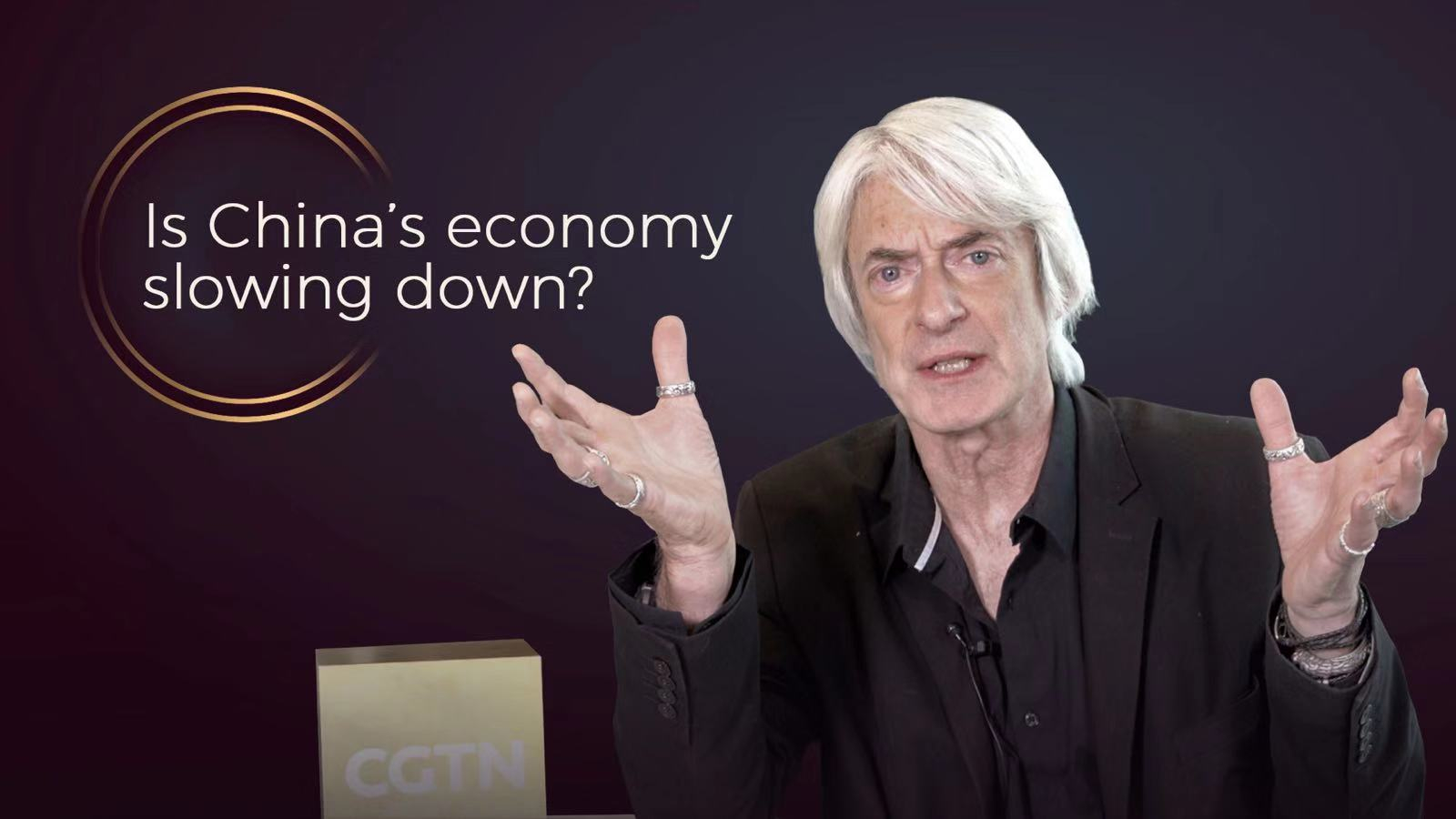
Opinion
09:27, 02-Mar-2019
Is China's economy slowing down?
Updated
10:13, 02-Mar-2019
Laurence Brahm
02:49

Editor's Note: Laurence Brahm is a senior international research fellow at the Center for China and Globalization, and he is also a lawyer, policy adviser, filmmaker and social enterprise pioneer. The article reflects the author's opinion, and not necessarily the views of CGTN.
In 2018, China's GDP growth came in at 6.6 percent, the lowest in more than two decades. This has been rattling global markets. Westerners are afraid: Is China's economy going to slow down? And will it bring down Western economies with it? I think we have to look at this differently.
The 6.6 percent growth should be a lower amount of growth. This is not about the volume. it's about the quality of growth. We have to understand that for decades China has had double-digit growth. Much of this has been driven by fixed asset infrastructure investment to create roads, rails, systems and new cities across the country.
And we have to also understand that enough is enough. Because of excessive lending, China has been going through a de-leveraging process over the past few years to clean up bad debts. There has been an anti-corruption campaign against the misuse of funds. And all of this has had an effect in not only contracting the economy but also in creating a healthier and more stable economy.
Moreover, they are changing consumer patterns in China. Before, people went to shopping malls and shopped outside. Now, with online shopping, pre-shopping, you have a whole restructuring of the nature of the retail business, which, of course, is affecting the real estate industry. And all of this is contracting.
With new consumer patterns, new living patterns and a de-leveraging process taking place to create an economy that is less debt-dependent internally, we are now looking at a healthier, stronger and more resilient economy in the long term.
Environmental protection is key to this. Despite the high growth rates that presumably create jobs and bring people happiness, the reality is that environmental concerns –air quality, food quality, water quality and health – are priorities to people, requiring growth to be re-thought of not only in terms of quantity but also quality.
So 6.6 percent is not something we should be worried about by any standard. It is still a high growth rate. But what is most important now is that we have healthy, solid growth. That growth is looking not only at industrial output, but also at the environment, healthcare and social wellbeing. And in that respect, I think we are looking at a more ecological GDP – a GDP that is going to be better for the sustainability of China and the world.
(If you want to contribute and have specific expertise, please contact us at opinions@cgtn.com)

SITEMAP
Copyright © 2018 CGTN. Beijing ICP prepared NO.16065310-3
Copyright © 2018 CGTN. Beijing ICP prepared NO.16065310-3